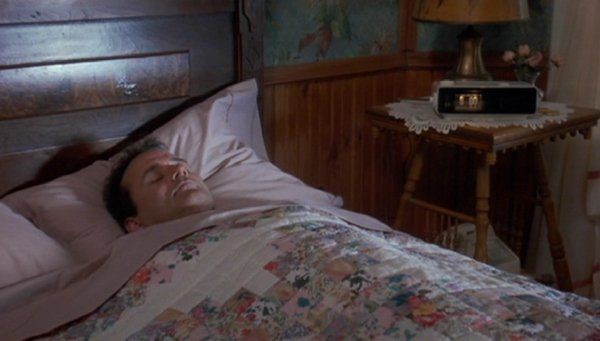
The other day I was chatting with my brother about life in quarantine. As of this writing, we’re now five months into coronavirus-enforced social distancing in the United States. He and his wife live in California with their two young boys. Things were going fine, he said, “but it’s like Groundhog Day around here.”
He was referencing the classic Bill Murray film, of course. It has probably been a while since you’ve seen Groundhog Day, so here’s a quick recap. (If you’ve never seen it, spoilers ahead.)
Murray’s character is Phil Collins, a TV weatherman from Pittsburgh, who gets sent to the small town of Punxsutawney, Pennsylvania to cover their Groundhog Day ceremony. Punxsutawney is the town where they actually have a groundhog (named Punxsutawney Phil), who is brought out on February 2nd each year to either see or not see his shadow, and thus predict the duration of winter. Phil – the weatherman – hates this assignment; he thinks it’s a waste of time. He thinks the ceremony and the town that hosts it are cheesy, and he’s eager to return to Pittsburgh and get back to his normal life.

But when the day ends and the crew packs up to drive home, a snow-storm keeps them trapped in town. Angrily, Phil spends another night at the bed and breakfast in Punxsutawney. He wakes up in his room the next day, only it’s not the next day – it’s February 2nd again! Phil is stuck in a time loop, where he has to repeat this hated day over and over again. No matter what he does, he always wakes up on Groundhog Day.

So my brother was saying that every day in COVID quarantine is basically the same as the last. And for a lot of us, life in quarantine has been very repetitive, even boring and tedious. And everyone wants things to go back to normal.
But despite all that’s going wrong, and despite all the ways this situation is upsetting, there is a silver lining here. As we’ll see, Phil Collins learns an important lesson that eventually frees him from the time loop. And it’s a lesson that we, too, can benefit from.
In order to understand this lesson, we need to take a quick detour into Buddhist philosophy.
The Cycle of Samsara
Buddhism arose in India where Hinduism was dominant. Hinduism includes the ideas of karma and reincarnation. Reincarnation means that, when you die, you’re born again in another form. Karma is the sum total of all the good and bad you’ve done in your life. According to Hinduism, if you’ve got good karma, you’ll be reincarnated as something better, but if you’ve got bad karma you’ll be reincarnated as something worse. If you can accumulate enough good karma in each of your successive lives, then you’ll escape the cycle of reincarnation and be relieved from the endless suffering of life once and for all.
Buddhism took this and said, “No thanks. We don’t have to go through cycle after cycle to climb the ladder; we can escape the cycle in this life.” In Buddhism, the cycle of reincarnation is called Samsara. And while many Buddhists believe that Samsara is truly a cycle of birth, life, death, and rebirth, many others believe in a secular interpretation that’s much more practical.
In her book, When Things Fall Apart, Pema Chodron points out that we actually experience Samsara over and over again throughout our lives without dying and being reborn. We are trapped in the cycle each day so long as we are seeking comfort, avoiding pain, and running from fear. We are trapped in a repetitive sequence of waking, suffering, and going to sleep. Or, on an even shorter time-scale, we are trapped in a cycle of seeking pleasure, clinging in vain as that pleasure quickly fades, and then craving more pleasure – a life of perpetual dissatisfaction.1
I certainly don’t believe in reincarnation in the literal sense, but I do agree with Chodron. I believe that we all experience, in a very real way, this cycle of Samsara: the day-in, day-out cycle of normal living. And this has always been the case because the tendencies to avoid discomfort and seek pleasure are baked into human nature. It’s just that now, during the Covid-19 pandemic, the repetitive nature of this cycle is much more obvious.
When we are stagnant – when our lives aren’t moving forward – we live as Billy Murray did in Groundhog Day. But when we are progressing, each day is not like the last. Each day we wake up a little better. If you’re working on becoming better, each morning you’ll be “reborn” as a higher-status person, a more relaxed and satisfied person, a healthier person, or a happier person.

Acceptance
The other takeaway from the concept of Samsara is the importance of acceptance. When we resist reality, we suffer. And though we may escape the reality we dislike for short periods of time via distraction, drugs, or sleep, we will soon have to face it again. As long as we do not accept life’s inevitable downturns and discomforts, we will be trapped in this cycle.
The lesson Bill Murray’s character learns in Groundhog Day is therefore a perfect Buddhist parable. He does not like his assignment to cover Punxsutawney Phil, so he resists his reality at every turn, and as a result, he suffers. But he not only suffers; he awakens to the exact same reality that he hates each morning. Eventually, he realizes that he will never escape, and he surrenders to his fate. He decides to make the best of it. He begins working on himself – learning piano, for instance – and he starts doing people favors. His attitude improves, and he starts actually enjoying his never-ending Groundhog-Day life. And then, once he has fully embraced his reality, he is released from the cycle, and he awakens to a new day.
Making the Best of It
“Things don’t always happen for the best, but we can always make the best of the things that happen.” –Tal Ben-Shahar2
The question Phil Collins undoubtedly asked himself in the early days of his time-loop was, “How long is this going to last?”
Sound familiar?
That’s the very question many of us have been asking, over and over again, since the pandemic hit the United States back in February. We can, however, ask ourselves better questions.
How can you use your time in COVID quarantine to grow and improve?
What new opportunities will you create for your future?
If you embrace this time, like Phil Collins embraced his fate in the movie, you stand to come out of it stronger, healthier, and more fulfilled.
I’ve written for my other blog how the pandemic has created an opportunity for students to become better at independent learning. And I’ve written about how it’s creating more frequent and more powerful opportunities for parents to lead by example.
Well, it’s also a great time to work on your own self-improvement and self-education. And, most importantly, it’s the perfect time to practice the art of embracing your fate by choosing to make the best of it.
1 Chodron, Pema. When Things Fall Apart: Heart Advice for Difficult Times. Shambhala Publications, 2000.
2 Ben-Shahar, Tal. Psychology 1504: Positive Psychology. Harvard Open Course, 2009.
